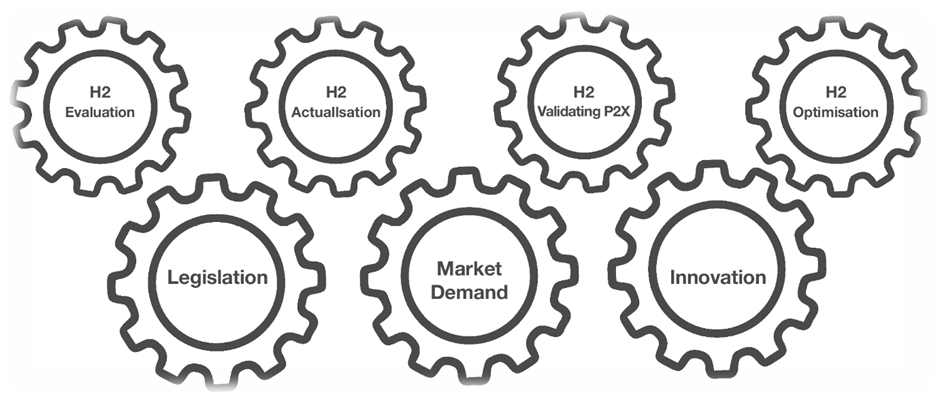My current research and development work is focused on creating a new energy equation for the hydrogen economy, developing an approach and formula that represents the true economic, community and environmental cost of energy with the key aspects of energy production, consumption, and efficiency within a hydrogen-based energy system. This innovative approach and resultant ‘balanced’ equation is intended to assist policymakers, engineers, and researchers to understand the full value of hydrogen and to better understand and optimize the hydrogen economy at all stages of the value chain
For too long we have looked at clean energy alternatives to fossil fuels and have based decisions on a purely economic cost basis only. As we strive to meet the Paris Agreement goals of 2030 and 2050 we have to develop a new way of looking at energy and include the social and environmental factors into the energy equation.
Primary equation:
E_cost = E_total – E_social – E_environmental
Sub equation:
E_total= E_production – E_losses + E_storage – E_transport – E_conversion – E_social – E_environmental
Where:
- E_social : Social costs of energy either positive or negative
- E_environmental: Environmental costs of energy either positive of negative
- E_total: Total energy in the hydrogen economy.
- E_production: Energy produced through hydrogen generation methods
- E_losses: Energy losses during production, including conversion losses and inefficiencies in the production process.
- E_storage: Energy used for hydrogen storage, including compression, liquefaction, or other storage methods.
- E_transport: Energy required for transporting hydrogen from production sites to end-users
- E_conversion: Energy losses during the conversion of hydrogen to useful forms, such as electricity or heat.
These equations provide simplified representations of the energy flow within a hydrogen economy, highlighting the social and environmental benefits of clean energy and also emphasizing the importance of minimizing losses and optimizing energy conversion and storage. The future actual equation for a specific hydrogen energy system will be more complex and detailed, taking into account various factors such as efficiency, energy sources, and specific technologies involved, but this version provides a starting point in moving beyond the economic only comparisons of fossil fuel based energy and clean energy vectors such as hydrogen – we cannot compare the two in simple factors but must widen the discussion and appreciation of clean energy.
In practice, creating a comprehensive and accurate energy equation for the hydrogen economy would require extensive data and modeling to consider all relevant variables. It should also be adaptable to various scales and applications within the hydrogen economy, including hydrogen for transportation, industry, and electricity generation. Collaborative efforts between all actors, practitioners, scientists, engineers, and policymakers are essential for developing a robust energy equation that reflects the real-world complexities of the hydrogen economy.
This topic and much more on the #GreenHydrogen landscape will be discussed in the Hydrogen Ireland conference 2023 Hydrogen – Delivering a balanced pathway to #netzero on the 28th and 29th November 2023 in Belfast












